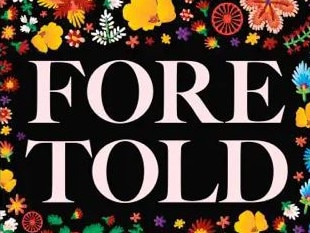Podcast review: Los Angeles Times’ Foretold tells story of Paulina Stevens, who escaped life as a psychic and grifter
The Foretold podcast from the LA Times tells the story of Paulina Stevens, who fled her life as a psychic and grifter in Orange County.

When do stereotypes and truth overlap and is it possible to separate them? The Foretold podcast from the LA Times (Dirty John, The Trials of Frank Carson) tells the story of Paulina Stevens, a young Romani woman who fled her community and husband with her young daughters.
At age 25, Stevens escaped from a psychic shopin Orange County, one of the wealthiest areas in Los Angeles, where she had been working as a fortune-teller. The woman tells how she was pulled from school in year 6 by her family and taught how to divine the future through tarot cards, astrology and palmistry. She went on to marry young and raised her children while essentially living as a grifter.
Stevens describes herself as a “scam artist born and bred”. She tells host Faith Pinho “gypsies have a bad rep and they should, I think. [But] not all of them.”
Stevens reached out to Pinho, a reporter for the Los Angeles Times, because she needed help and possibly a friend; someone who would think she was doing the right thing amid the family and community backlash.
Pinho is alongside Stevens as she takes her first steps outside of the cloistered world she’s always called home and attempts to secure custody of her kids in court.
Psychics, or people purporting to have clairvoyant powers, have been around forever. The Ancient Greeks had the blind prophet Tiresias, while 21st century America has television psychic John Edward.
Pinho says psychics and their businesses are everywhere in California. “People want security,” she says. “They want to know what the future will hold. Whether through tarot cards or a crystal ball, the fortune-teller will hint at how your story will play out.”
But the podcast is less about psychics and more about what happens when a person risks everything to forge their own path. Stevens breaks the strings of fate plotted for her by family, community and centuries of tradition.

In some ways Foretold is a story of the eternal struggle of the individual against culture and community.
Do we back the individual or the community? And what does this mean in a modern context where identity is over-scrutinised and has never been so keenly felt.
In other ways Foretold’s story is unique; not many girls grow up learning to read tea leaves and palms while hiding their Romani identity.
There’s a question as to whether the Romanis could have survived against such fierce hatred for so long if they had not bunkered down. Professor Ian Hancock tells the podcast that about 1.5 million Romani people died during the Holocaust and the Nazis tested poisonous gas on their children.
“You have to be exclusionist in order to preserve identity,” he says. “You have to close ranks to prevent infiltration from outside, which doesn’t encourage people getting too close, knowing too much and this also does not make you friends.”
There’s also some discussion about the cancellation of the word “gypsy” because it is now deemed to be a racist slur.
In the queue
Psychic cowgirl – Reverend Shannon Laackman combines cowboy wisdom to help listeners raise awareness and intuition.
Modern minorities – Conversations with movers and shakers from different cultural backgrounds.
New Home – A series from SBS that follows the stories of migrant women as they settle in Australia.




To join the conversation, please log in. Don't have an account? Register
Join the conversation, you are commenting as Logout